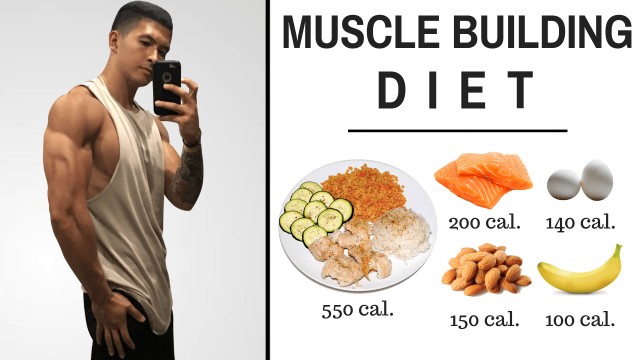Breaking News Blast
Stay updated with the latest news and insightful articles.
Eat Big, Lift Big: The Diet Dilemma
Unlock the secrets of bulking up! Discover the ultimate diet tips for serious lifters and transform your gains today!
Meal Prep Strategies: Fueling Your Gains on a Bulking Diet
Meal prep is essential for anyone looking to maximize their gains while following a bulking diet. By planning and preparing your meals in advance, you can ensure that your body is getting the right balance of macronutrients needed for optimal muscle growth. Start by creating a weekly meal plan that incorporates calorie-dense foods like brown rice, quinoa, lean meats, and healthy fats. Using batch cooking techniques can also save you time; for instance, cook a large portion of chicken and a variety of vegetables that can be mixed and matched throughout the week to keep your meals interesting.
To enhance your success with meal prep, consider investing in quality food storage containers that allow for easy portion control. This will help you avoid over or under-eating and keep your caloric intake consistent. Additionally, it's beneficial to incorporate a variety of flavors and textures into your meals to maintain enthusiasm and prevent feeling deprived. A simple approach could involve preparing a bulking diet signature recipe that you enjoy, such as a hearty chicken stir-fry, which can easily be modified with different vegetables and sauces each week.

The Science of Macronutrients: How to Eat Big and Lift Big
The science of macronutrients revolves around understanding the three main components of our diets: carbohydrates, proteins, and fats. Each macronutrient plays a crucial role in fueling your body, especially when you're on a mission to eat big and lift big. Carbohydrates are your body's primary source of energy, making them essential for high-intensity workouts. They not only replenish glycogen stores post-exercise but also support enhanced performance in the gym. Meanwhile, protein is vital for muscle repair and growth; it is recommended to consume about 1.6 to 2.2 grams of protein per kilogram of body weight for those aiming to build muscle mass. Lastly, healthy fats contribute to hormone production and overall nutrient absorption, directly influencing your strength and energy levels.
When adhering to a macronutrient-focused diet, it's important to consider both the quantity and quality of the foods you consume. Here’s a simple breakdown of what to aim for in your daily intake:
- Carbohydrates: 45-65% of your total calories
- Proteins: 25-35% of your total calories
- Fats: 20-30% of your total calories
By tailoring your meals to these ratios, you can optimize your macronutrient intake to not only support your lifting goals but also enhance recovery and overall performance. Remember to prioritize whole, nutrient-dense foods like lean meats, whole grains, fruits, and vegetables to maximize the benefits of your diet.
Common Misconceptions About Bulking: What You Need to Know
When it comes to bulking, common misconceptions often cloud the minds of those looking to gain muscle. One prevalent myth is that bulking simply means consuming an excessive amount of calories without consideration for the quality of the food. This leads many to believe that any surplus calories will result in muscle gain, neglecting the role of macronutrient balance and nutrient-dense foods. To effectively bulk, it's crucial to ensure that your diet includes a healthy mix of proteins, carbohydrates, and fats that support muscle synthesis rather than just piling on unhealthy junk food.
Another misconception is that bulking should be a prolonged phase without any attention to body composition. Many people think they can gain as much weight as possible over an extended period, leading to unnecessary fat gain. However, implementing strategic bulking periods with breaks for cutting can help maintain a healthier body composition. Incorporating strength training and adjusting caloric intake based on progress is vital for optimizing muscle gains. Remember, bulking is not just about weight gain, but rather about smart and healthy muscle building.